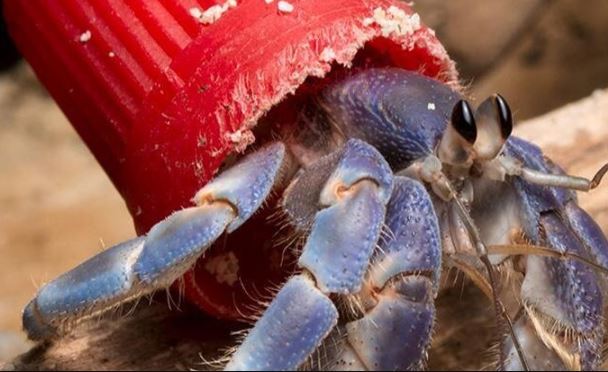Effects of pollution? Imbalance between species? Behavior changes? Hermit crabs, known for their behavior of gradually changing their shells to protect themselves, are increasingly using pieces of plastic to make their “home”.
Mark Briffa, an animal behavior expert at the University of Plymouth in the United Kingdom, warns of this increasingly common phenomenon. As a study conducted by Polish researchers showed.
They studied 386 photographs of hermit crabs using pieces of plastic, metal or glass as artificial shells, and in most cases, the researchers found that the animals seemed to prefer plastic (this was verified in 326 cases).
Without further analysis, it would be a great example of how human activities can change the behavior of animals and also how populations and ecosystems function and relate to each other as a result. But researchers caution that before jumping to conclusions, it is essential to realize that there are many factors to take into consideration.
Hermit crabs search for shells large enough to protect themselves from predators, but the decision to “change” the shelter also involves evaluating the type, condition, weight or even color of the shell.
The availability of suitable shells is also an aspect that must be taken into consideration, as according to a study conducted by researchers at the University of Warsaw, for a reason that is still unknown, there are increasing cases of these animals inhabiting plastic waste instead of natural shells. .
Scientists have raised several questions regarding behavior and put forward some hypotheses. For now, they say the numbers are an underestimate, as they used photos uploaded by users on their own platform, thus sampling animals that only live in areas accessible to residents.
Why plastic? Experts speculate that hermit crabs may choose plastic items due to the lack of natural shells, but also the fact that it is a lightweight material, offering the same protection, may prompt the animal to choose it, as it represents a lower energy cost for the animal. – Carry it on your back.
Another aspect highlighted by Marc Briffa is the fact that several scientific studies have already proven that plastic, when decomposed, emits chemicals that mimic the smell of hermit crabs' favorite foods.
They also highlighted that microplastics and bleaching compounds that plastic produces when it decomposes can also change the behavior of these crustaceans and even their personality, making them less demanding with the shells of their choice or more risky.
On the other hand, the two hypotheses lead to a third hypothesis: the problem of what behavior might mean for a species. Because plastic is usually brighter and more colorful than shells, it contrasts more with the seafloor, making hermit crabs with artificial shells more vulnerable to predators.
Briffa notes that the Polish research acts “like a warning signal,” but potential changes in hermit crab behavior must be studied in depth, in order to assess their origin, causes and possible consequences.

“Coffee trailblazer. Social media ninja. Unapologetic web guru. Friendly music fan. Alcohol fanatic.”

